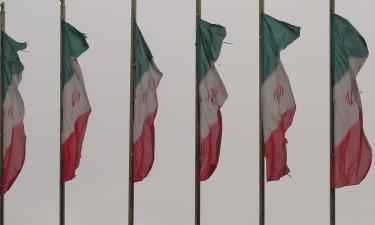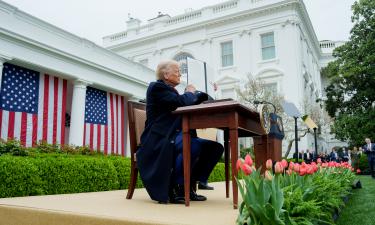PORTUGAL: REGIONAL ELECTIONS – VOTE ON POLITICAL LEFT GROWS
THE ELECTIONS FOR THE REGIONAL PARLIAMENTS OF THE AUTONOMOUS GOVERNMENTS OF THE PORTUGUESE ATLANTIC ISLANDS (MADEIRA AND AZORES) PROVED NO EXCEPTION TO THE RULE : THE PORTUGUESE RE-ELECT WHOEVER IS IN POWER. IN THESE ELECTIONS, THE VOTE ON POLITICAL LEFT GREW IN BOTH REGIONS For over forty years, from 1928 to 1974, Portugal was ruled by a Fascist Dictatorship. On 25th April, 1974, the “Revolution of the Carnations” occurred, so-called because the soldiers who took part put carnations in the barrels of their guns to prove that no bullets would be fired. After the “hot years” of the 1970s, the political scenario settled down. Portugal took advantage of its geographical position (its only frontier is with Spain) and joined its larger neighbour in the European Union project. Both countries entered in 1986 and Portugal has never looked back. Numerous subsidies turned this country from one of the poorest nations in Europe into a modern European state in a quarter of a century. This because the successive Portuguese governments have been excellent European students, learning how to put community programmes into practice, taking advantage of the experience of other states while not being held back by ageing systems, which hinder progress. Portugal could take advantage of modern technology, with state of the art systems being implemented directly, not having to adapt or destroy older or existing systems, which proves more costly and more complicated, making Portugal a potentially excellent teacher for new member states in eastern Europe : Portuguese assistance comes with goodwill and expertise and does not colonise or create financial and political dependence. In this oasis of new-found prosperity, it is therefore not surprising that the Portuguese generally re-elect those in power, thanks to the political maturity of all the Portuguese political formations. Portugal has everything to gain and nothing to lose from membership of the EU. From 1985 to 1995, Prime Minister, Cavaco Silva, was re-elected twice. The present Prime Minister, Antуnio Guterres (Socialist Party) is in the second year of his second term. Since the hot years immediately after the Portuguese Revolution, there have been only three Presidents : General Eanes, Dr. Mбrio Soares and Dr. Jorge Sampaio, currently running for his second term in the Presidential elections which take place next January. The Portuguese Islands of Madeira and the Azores have always been conservative, even by Portuguese standards and these elections proved the rule has no exceptions. It should be noticed that the vote for the parties on the political left increased in both regional elections.
Tim Bancroft-Hinchey Lissabon
Subscribe to Pravda.Ru Telegram channel, Facebook, RSS!




